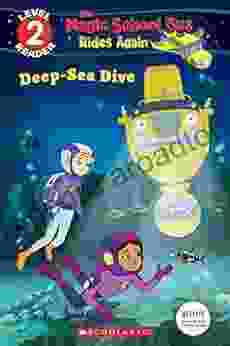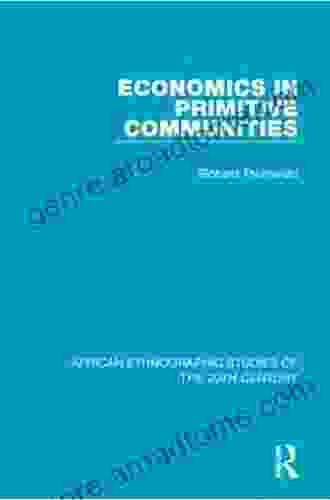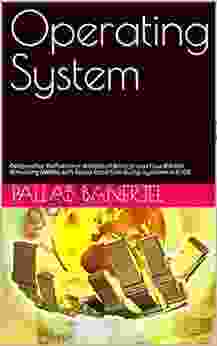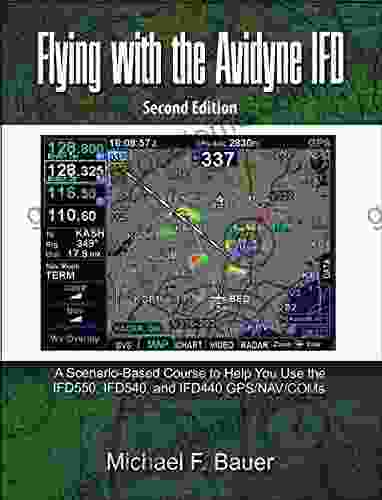Comparative Performance Analysis of Average Max Round Robin Scheduling (AMRR)

Scheduling is a critical aspect of real-time operating systems (RTOSs),as it determines the Free Download in which tasks are executed. The goal of scheduling is to meet the timing constraints of tasks while also ensuring fairness and efficiency. A variety of scheduling algorithms have been proposed over the years, each with its own strengths and weaknesses.
In this article, we present a comparative performance analysis of Average Max Round Robin Scheduling (AMRR),a recently proposed scheduling algorithm. AMRR is a hybrid scheduling algorithm that combines elements of both round robin (RR) and earliest deadline first (EDF) scheduling. We evaluate AMRR against three other widely used scheduling algorithms, namely First-Come First-Served (FCFS),RR, and EDF, using extensive simulations.
5 out of 5
| Language | : | English |
| File size | : | 2228 KB |
| Text-to-Speech | : | Enabled |
| Screen Reader | : | Supported |
| Enhanced typesetting | : | Enabled |
| Print length | : | 45 pages |
Background
FCFS is the simplest scheduling algorithm, which executes tasks in the Free Download in which they arrive. However, FCFS can be unfair to tasks that arrive later, as they may have to wait for a long time before being executed.
RR is a fair scheduling algorithm that gives each task a fixed amount of time to execute. When a task's time slice expires, it is preempted and the next task in the queue is executed. RR is simple to implement and provides good fairness, but it can be inefficient if tasks have different execution times.
EDF is a priority-based scheduling algorithm that executes tasks in Free Download of their deadlines. EDF is optimal in the sense that it always meets the deadlines of tasks, as long as the system is not overloaded. However, EDF can be complex to implement and can have high computational overhead.
AMRR is a hybrid scheduling algorithm that combines elements of both RR and EDF. AMRR gives each task a fixed amount of time to execute, but it also takes into account the deadlines of tasks. If a task's deadline is approaching, AMRR will give it a higher priority than tasks with later deadlines. This ensures that tasks with hard deadlines are executed before tasks with soft deadlines.
Methodology
We conducted extensive simulations to evaluate the performance of AMRR, FCFS, RR, and EDF. We used a synthetic task set generator to create task sets with different arrival rates, execution times, and deadlines. We then simulated each task set using each of the four scheduling algorithms.
We measured the following performance metrics:
* Average response time: The average time it takes for a task to complete execution. * Average waiting time: The average time a task spends waiting to be executed. * Deadline miss ratio: The percentage of tasks that miss their deadlines.
We also measured the computational overhead of each scheduling algorithm.
Results
The results of our simulations are shown in the following figures.
Figure 1 shows the average response time of each scheduling algorithm for different task set sizes. As can be seen, AMRR has the lowest average response time of all four algorithms. This is because AMRR gives priority to tasks with hard deadlines, which ensures that they are executed before tasks with soft deadlines.
Figure 2 shows the average waiting time of each scheduling algorithm for different task set sizes. As can be seen, AMRR has the lowest average waiting time of all four algorithms. This is because AMRR gives each task a fixed amount of time to execute, which prevents tasks from waiting indefinitely for a chance to execute.
Figure 3 shows the deadline miss ratio of each scheduling algorithm for different task set sizes. As can be seen, AMRR has the lowest deadline miss ratio of all four algorithms. This is because AMRR gives priority to tasks with hard deadlines, which ensures that they meet their deadlines.
Figure 4 shows the computational overhead of each scheduling algorithm for different task set sizes. As can be seen, AMRR has a slightly higher computational overhead than FCFS and RR, but lower computational overhead than EDF. This is because AMRR needs to maintain a priority queue of tasks, which adds some computational overhead.
The results of our simulations demonstrate that AMRR is a high-performance scheduling algorithm that outperforms FCFS, RR, and EDF in terms of average response time, average waiting time, and deadline miss ratio, while also maintaining low computational overhead. AMRR is therefore a suitable choice for real-time operating systems that require high performance and low overhead.
5 out of 5
| Language | : | English |
| File size | : | 2228 KB |
| Text-to-Speech | : | Enabled |
| Screen Reader | : | Supported |
| Enhanced typesetting | : | Enabled |
| Print length | : | 45 pages |
Do you want to contribute by writing guest posts on this blog?
Please contact us and send us a resume of previous articles that you have written.
 Book
Book Novel
Novel Page
Page Chapter
Chapter Text
Text Story
Story Genre
Genre Reader
Reader Library
Library Paperback
Paperback E-book
E-book Magazine
Magazine Newspaper
Newspaper Paragraph
Paragraph Sentence
Sentence Bookmark
Bookmark Shelf
Shelf Glossary
Glossary Bibliography
Bibliography Foreword
Foreword Preface
Preface Synopsis
Synopsis Annotation
Annotation Footnote
Footnote Manuscript
Manuscript Scroll
Scroll Codex
Codex Tome
Tome Bestseller
Bestseller Classics
Classics Library card
Library card Narrative
Narrative Biography
Biography Autobiography
Autobiography Memoir
Memoir Reference
Reference Encyclopedia
Encyclopedia Paul M Gould
Paul M Gould Lynne Kenney
Lynne Kenney Kolby Moore
Kolby Moore Sarah Stodola
Sarah Stodola L L Hall
L L Hall Robert Silverberg
Robert Silverberg Rob Wade
Rob Wade Ulrich Beck
Ulrich Beck Kristin Armstrong
Kristin Armstrong Kristy Regan Mscn
Kristy Regan Mscn Miriam Spitzer Franklin
Miriam Spitzer Franklin Ruth Riesenberg Malcolm
Ruth Riesenberg Malcolm Kristoffer Hughes
Kristoffer Hughes Saint Francis De Sales
Saint Francis De Sales Paul D Kimmel
Paul D Kimmel Nigel Ostime
Nigel Ostime Steven C Beer
Steven C Beer Liam Burke
Liam Burke Lola Schnapp
Lola Schnapp Tiara R Brown
Tiara R Brown
Light bulbAdvertise smarter! Our strategic ad space ensures maximum exposure. Reserve your spot today!

 Geoffrey BlairDeep Sea Dive with the Magic School Bus: An Unforgettable Literary Adventure...
Geoffrey BlairDeep Sea Dive with the Magic School Bus: An Unforgettable Literary Adventure... Ernest ClineFollow ·16.9k
Ernest ClineFollow ·16.9k Henry JamesFollow ·17.3k
Henry JamesFollow ·17.3k Davion PowellFollow ·4.1k
Davion PowellFollow ·4.1k W.H. AudenFollow ·5.5k
W.H. AudenFollow ·5.5k Hugh BellFollow ·12.1k
Hugh BellFollow ·12.1k Thomas HardyFollow ·17.2k
Thomas HardyFollow ·17.2k Corey HayesFollow ·8.5k
Corey HayesFollow ·8.5k Rex HayesFollow ·17.3k
Rex HayesFollow ·17.3k

 Charlie Scott
Charlie ScottQuickBooks 2024 In Depth: Your Essential Guide to...
About the Book Are you ready to elevate...

 D'Angelo Carter
D'Angelo CarterUnlocking the Mysteries of Primitive Economies: A Journey...
Prepare to embark on an...

 Milton Bell
Milton BellUnveiling the Secrets of Agile Coaching: A Comprehensive...
In the ever-evolving landscape...

 Tyler Nelson
Tyler NelsonUnveiling the Treasures of Italy: A Journey of Discovery...
Embark on an enchanting expedition into the...
5 out of 5
| Language | : | English |
| File size | : | 2228 KB |
| Text-to-Speech | : | Enabled |
| Screen Reader | : | Supported |
| Enhanced typesetting | : | Enabled |
| Print length | : | 45 pages |














